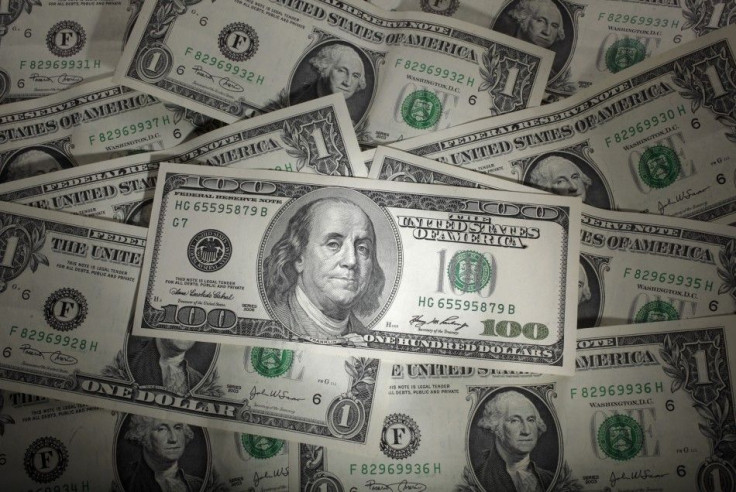Corporate Tax Rates: Lobbying Helps Big Business Pay Less To Federal Government, Says Study
Analysis

Tax Day 2012 is upon us. As many American procrastinators scrutinize their forms one last time to make sure they've itemized every possible deduction, a new study shows that corporations have their own ways to keep their cash away from Uncle Sam's coffers.
The Sunlight foundation released a report on Monday showing that big companies that spent more on lobbying saved more on federal taxes. Big corporations, in other words, have effectively bought themselves more favorable tax policies.
On average, companies we examined reported paying a slightly lower overall tax rate in 2010 than in 2007... But the eight companies that spent the most on federal lobbying between 2007 and 2009 all decreased their overall tax rate between 2007 and 2010. Six of the Big Eight enjoyed a decrease of at least seven percentage points, said the report.
The eight corporations that spent the most on federal lobbying are, from the top: Exxon Mobil, Verizon Communications, General Electric, AT&T, Altria, Amgen, Northrop Grunman and Boeing.
Of those, Exxon Mobil spent the most but got the least bang for its buck with just a 1.1 percent decline in tax rates from 2007 to 2010. Norththrop Grunman lobbyists were apparently the most effective; they were seventh in spending but scored a whopping 11.4 percent tax decrease.
And the payoff didn't all go to biggest spenders; across the board, tax policy lobbying seems to be a very worthwhile endeavor.
Taking the 200 companies as a whole, we estimate that for each additional $1 million that companies spent lobbying between 2007 and 2009, their 2010 tax rate fell by 7/100ths of a percent, said the report. While that might not sound like much, for a $2.5 billion company at the median in our sample of large companies, each $1 million spent on lobbying translates into an estimated annual tax savings of $1.8 million-- almost double the original investment, with benefits likely to continue in the future.
Lobbying is big business in the United States, and doesn't appear to have been impacted much by the recession. The Center for Responsive Politics reports that total lobbyist spending has more than doubled over the past ten years. In 2011, it hit $3.31 billion.
How exactly does this lobbying work? There are no simple answers; lobbyists can influence policy in countless ways, both direct and indirect. They advocate for corporations, trade associations, advocacy groups and other organizations, and their main function is to influence government policy in favor of whomever they represent.
Quite often, lobbyists function as policy experts. A U.S. senator, for instance, would be hard-pressed to know the details about every industry that functions within his or her state. But by forming relationships with a diverse set of lobbyists, the senator gains access to a cache of advisors. In that sense, a lobbyist can serve as a policy expert for the legislator as well as an advocate for an industry, union or other organization.
That's the best-case scenario. In practice, lobbyists often come under of suspicion due their outsize influence on national policies, and they are frequently accused of defending special interests at the expense of the general public. That's why regulations, like the Lobbying Disclosure Act of 2008, are in place to ensure that both lobbyists and legislators abide by a strict code of ethics.
Regulations generally work to prevent flagrant misconduct, but crafty lobbyists and legislators can usually find other ways to trade favors.
Money can't buy friendship, for instance, but it does enable lobbyists to attend all the right events and arrange face-time with politicians. Money can't pass a bill, but it can fund the research that influences a piece of legislation. Money can't cast a vote, but lobbyists frequently support the political campaigns of favorable candidates.
It's a tricky business -- one that can be very difficult to keep track of. But when it comes to taxation, the changes wrought by lobbying affect not only big corporations, but individual Americans. The issue is especially important now that President Barack Obama and his presumptive November opponent, Republican Mitt Romney, are embroiled in a verbal battle over tax policy. Obama has argued for greater tax fairness and advocated taxing the rich more, while Romney has called for lower taxes across the board to create jobs and jumpstart the economy.
Both candidates have suggested cutting corporate tax rates. Obama's plan would cut top rates down to 28 percent, but would purportedly raise $250 billion from business over the next ten years by closing loopholes. Romney would cut the top corporate tax rate down to 25 percent and repeal the alternative minimum tax.
The Sunlight Foundation study doesn't seem to take a political stance; lobbyists, after all, work on both sides of the aisle and represent everything from small nonprofits to labor unions to giant corporations. The report does not paint any one group of politicians as more or less corrupt. Nor does it get very specific about exactly how the nation's most effective lobbyists achieve their goals. But the broad strokes are clear: money matters. Despite strict regulations, public watchdogs and media scrutiny, corporate cash has a significant effect on taxation and public policy.
© Copyright IBTimes 2024. All rights reserved.






















